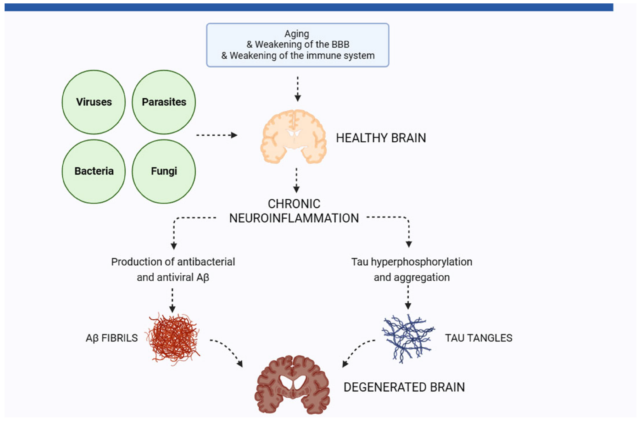Listen to this page
The hypothesis that nose picking could contribute to an increased risk of developing Alzheimer’s disease is gaining traction among experts, as outlined in a recent review published in Biomolecules. While the idea may seem unconventional at first, it is rooted in the understanding of how pathogens entering the body through the nasal cavity can potentially lead to neuroinflammation, a process implicated in Alzheimer’s disease.
The review suggests that nose picking, or rhinotillexomania, may indirectly contribute to brain inflammation through two main mechanisms. Firstly, the act of picking the nose can transfer pathogens from the fingertips into the nasal cavity, providing them with a direct route to the brain. Secondly, nose picking can disrupt the balance of the nasal microbiome, compromising its ability to serve as a barrier against infections.

Previous research has shown associations between nose picking and an increased risk of infection, including a study linking the habit to a higher likelihood of contracting COVID-19. Additionally, studies in mice have demonstrated that damage to the nasal epithelium, the tissue lining the nasal cavity, can lead to brain responses similar to those observed in Alzheimer’s disease.
Several indicators support the potential link between nose picking and Alzheimer’s risk, including the presence of viruses in the brains of Alzheimer’s patients and the observation that Alzheimer’s-related changes are often first detected in the olfactory bulb, which is responsible for detecting smells.
While further research is needed to confirm the connection between nose picking and Alzheimer’s risk, the findings suggest that improving hand hygiene could be a simple preventive measure. As highlighted by the researchers, lessons learned from the COVID-19 pandemic emphasize the importance of hand hygiene in reducing the spread of pathogens and potentially lowering the risk of neuroinflammation associated with Alzheimer’s disease.
 Loading...
Loading...
If you have found a spelling error, please, notify us by selecting that text and pressing Ctrl+Enter.
Discover more from Pinch News
Subscribe to get the latest posts to your email.











Spelling error report
The following text will be sent to our editors: